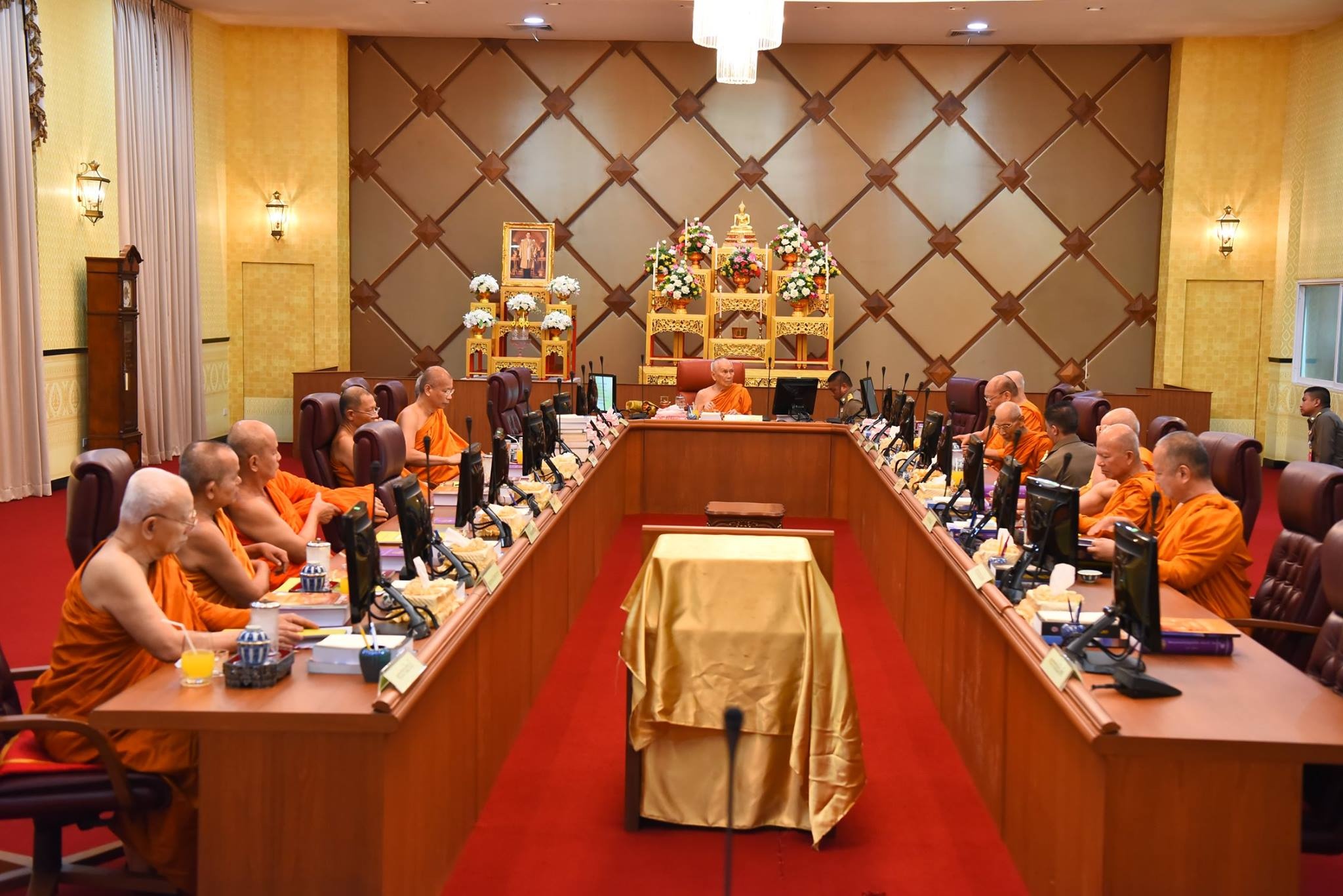
An Analysis of the Strengths and Weaknesses of the Management Systems of Thai Buddhist
Organizations in Terms of their Effectiveness and Contribution to Buddhism
ผู้ช่วยศาสตราจารย์ดนัย ปรีชาเพิ่มประสิทธิ์
Assistant Professor Danai Preechapermprasit
บทคัดย่อ
งานวิจัยนี้มีวัตถุประสงค์เพื่อวิเคราะห์จุดเด่น จุดด้อยขององค์การและกระบวนการบริหารจัดการองค์การพระพุทธศาสนาของประเทศไทยในปัจจุบันโดยเฉพาะที่เป็นหน่วยงานของรัฐและเพื่อหาแนวทางแก้ไขปรับปรุงการบริหารจัดการเพื่อขจัดข้อด้อยและเพิ่มประสิทธิภาพให้เกิดแก่คุณค่าแก่พระพุทธศาสนายิ่งขึ้นโดยศึกษาเอกสารเกี่ยวกับ การบริหารจัดการองค์การพระพุทธศาสนาตั้งแต่สมัยพุทธกาลจนถึงพระราชบัญญัติคณะสงฆ์พ.ศ. 2505 (ฉบับปรับปรุงแก้ไขพ.ศ. 2535) โดยกรอบการบริหารจัดการตามพระธรรมวินัยคือต้องบริหารอย่างเปิดเผยและเป็นไปเพื่อประโยชน์ตนและประโยชน์ท่านโดยไม่ได้หวังให้มีการยกย่องใดๆ ตามหลักการบริหารอธิกรณ์ 4 ด้วยอธิกรณสมถะหรือวิธีการจัดการอธิกรณ์ 7 อย่าง
การบริหารจัดการองค์การพระพุทธศาสนาในสมัยพุทธกาลใช้พระธรรมวินัยเป็นหลักแต่เมื่อพระพุทธศาสนาเข้าสู่ประเทศไทยการบริหารจัดการองค์การพระพุทธศาสนาได้เปลี่ยนแปลงไปตามรูปแบบการปกครองของอาณาจักร แต่เมื่อมีพระราชบัญญัติคณะสงฆ์ พ .ศ. 2505 จนถึงฉบับปรับปรุงแก้ไข พ .ศ. 2535 แม้ประเทศปกครองด้วยระบอบประชาธิปไตยแต่พระราชบัญญัติคณะสงฆ์กลับมีรูปแบบสมบูรณาญาสิทธิราชย์จึงทําให้การบริหารจัดการอธิกรณ์ทั้ง 4 ด้วยอธิกรณสมถะทั้ง 7 เกิดปัญหาต่างๆ เช่น ความล่าช้า ความไม่เป็นธรรม ความไม่ชัดเจนตามพระธรรมวินัยและส่งผลต่อศรัทธาของประชาชน ข้อดีของการบริหารจัดการองค์การพระพุทธศาสนาในปัจจุบันคือความเป็นเอกภาพและมีความใกล้ชิดกับรัฐ ข้อเสียได้แก่ การประทุษร้ายต่อพระธรรมวินัยและความเสื่อมศรัทธาของประชาชน ทั้งนี้เพราะปัจจัยแวดล้อม 3 ประการคือ 1) พระราชบัญญัติการปกครองคณะสงฆ์ พ.ศ. 2505 2) โครงสร้างของมหาเถรสมาคม และ 3) ระบบสมณศักดิ์
แนวทางแก้ไขคือ 1) แก้ไขพระราชบัญญัติคณะสงฆ์ให้มีความทันสมัย และบัญญัติขอบเขตอํานาจของอาณาจักรและพุทธจักรให้ชัดเจน เพื่อไม่ให้มีความซํ้าซ้อนและล่าช้า 2) ปรับโครงสร้างมหาเถรสมาคมและสํานักงานพระพุทธศาสนาแห่งชาติ ให้ลดขั้นตอนการทํางานและมีการกระจายอํานาจให้ส่วนท้องถิ่น เพื่อความรวดเร็วและเป็นธรรม และ 3) แก้ไขระบบสมณศักดิ์ออกจากตําแหน่งบริหารเพื่อไม่ให้เกิดปัญหาเรื่องผลประโยชน์และการใช้อํานาจหน้าที่โดยมิชอบเพื่อทําให้การบริหารจัดการเป็ นไปตามพระธรรมวินัยอย่างเป็นธรรมและมีประสิทธิภาพ
Abstract
This research project is intended to analyze the strengths and weaknesses of the management systems within Buddhist organizations, in particular, the public Buddhist entities in Thailand. Its purpose is to help identify the weaknesses within, and find ways to increase the effectiveness of, these systems. This research was based upon studies of documentations around Buddhist organization management during the Buddha’s time and the original Sangha Act 1962 (amended in 1992). The general framework for good management, according to the dharma vinaya, is that it should be transparent and for the best interest of the public, and that one should expect no benefits for oneself. The Four Adhikaraṇa or seven principles of problem management (Adhikaraṇasamatha) should be followed as best practices for organization management.
The management systems of Buddhist organizations during the Buddha’s time followed the dharma vinaya, as clearly laid out by the Buddha. When Buddhism entered Thailand, the systems had to adapt to fit the governance and culture of the country. However, the Sangha Act 1962 (amended in 1992) maintains Buddhist organizational management systems that resemble those of an absolute monarchy even though the Thailand’s political system has become a constitutional democracy. This absolute system in the Buddhist sphere has caused many issues such as delays, injustice, and ambiguity – and ultimately has shaken the faith of Thai citizens. The pros of the system are it encourages unity and close connection to the state and to key leaders. However, the cons include distorting the dharma vinaya and deteriorating the faith of local citizens due to three main factors: (1) The Sangha Act 1962, (2) structure of the Sangha Supreme Council of Thailand, and (3) seniority system of monks.
Recommendations:
1. Revise the Sangha Act to be more current and establish clear boundaries between the state’s
governance and the sangha governance to avoid duplication and delays.
2. Re-structure the Sangha Supreme Council of Thailand and National Office of Buddhism and
simplify operational processes. In addition, decentralize and empower the local authority to make decisions that are efficient and fair.
3. Remove the seniority system from the managerial position to avoid the issue around personal
benefits and potential abuse of power, and to allow the systems to be effective and following dharma vinaya.